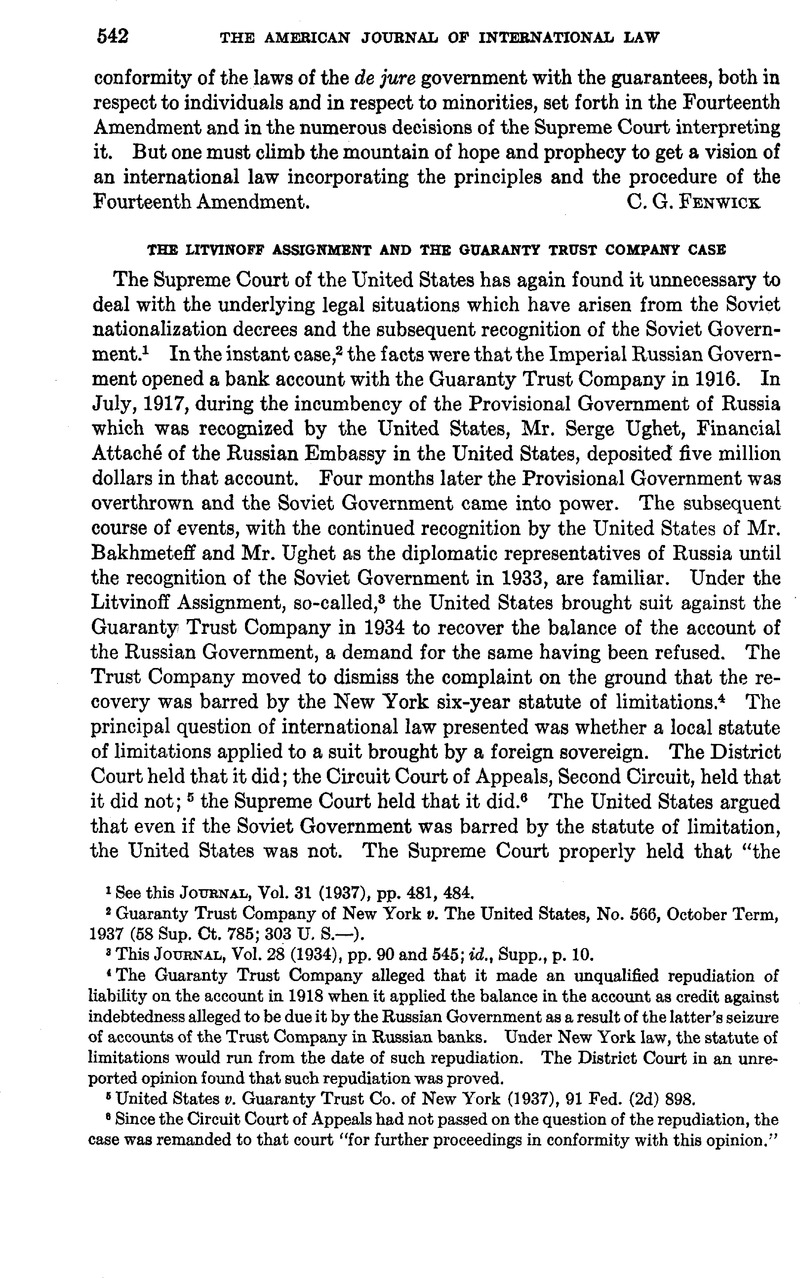No CrossRef data available.
Published online by Cambridge University Press: 12 April 2017

1 See this Journal, Vol. 31 (1937), pp. 481, 484.
2 Guaranty Trust Company of New York v. The United States, No. 566, October Term, 1937 (58 Sup. Ct. 785; 303 U. S.—).
3 This Journal, Vol. 28 (1934), pp. 90 and 545; id., Supp., p. 10.
4 The Guaranty Trust Company alleged that it made an unqualified repudiation of liability on the account in 1918 when it applied the balance in the account as credit against indebtedness alleged to be due it by the Russian Government as a result of the latter’s seizure of accounts of the Trust Company in Russian banks. Under New York law, the statute of limitations would run from the date of such repudiation. The District Court in an unreported opinion found that such repudiation was proved.
5 United States v. Guaranty Trust Co. of New York (1937), 91 Fed. (2d) 898.
6 Since the Circuit Court of Appeals had not passed on the question of the repudiation, the case was remanded to that court “for further proceedings in conformity with this opinion.”
7 See Research in International Law, Harvard Law School, Draft Convention on Competence of Courts in Regard to Foreign States, this Journal, Supp., Vol. 26 (1932), p. 455 ff. This draft convention is not directly cited in the opinions or in the briefs.
8 Cheatham, Dowling and Goodrich, Cases and Materials on Conflict of Laws, p. 371. This distinction is not appreciated in either brief where the decision of the French Court of Cassation in Gouvernement espagnol c. Veuve et Héritiers d’Aguado is discussed.
9 See Harvard Research Draft, op. cit., p. 527 ff. The brief of the petitioner, while learned, is not persuasive in endeavoring to suggest that the rule of immunity is “of fairly recent development in our law.” A contrary rule “in the middle ages” does not militate against the establishment of a customary rule of international law through the course of the last hundred years.
10 See this Journal, Vol. 31 (1937), pp. 481, 482.
11 The court does not accept the theory of the Government’s brief that the Soviet Government’s repudiation of Mr. Bakhmeteff was an act within its own territory which should be retroactively validated by recognition.
12 See this Journal, Vol. 31 (1937), p. 481.
13 For the sound basis of treaty interpretation, see Hyde, , “The Interpretation of Treaties by the Supreme Court of the United States,” this Journal, Vol. 23 (1929), p. 824.Google Scholar
14 Vol. 22 (1928), p. 185. The petitioner’s brief gives Ralston’s Supplement as an additional citation.